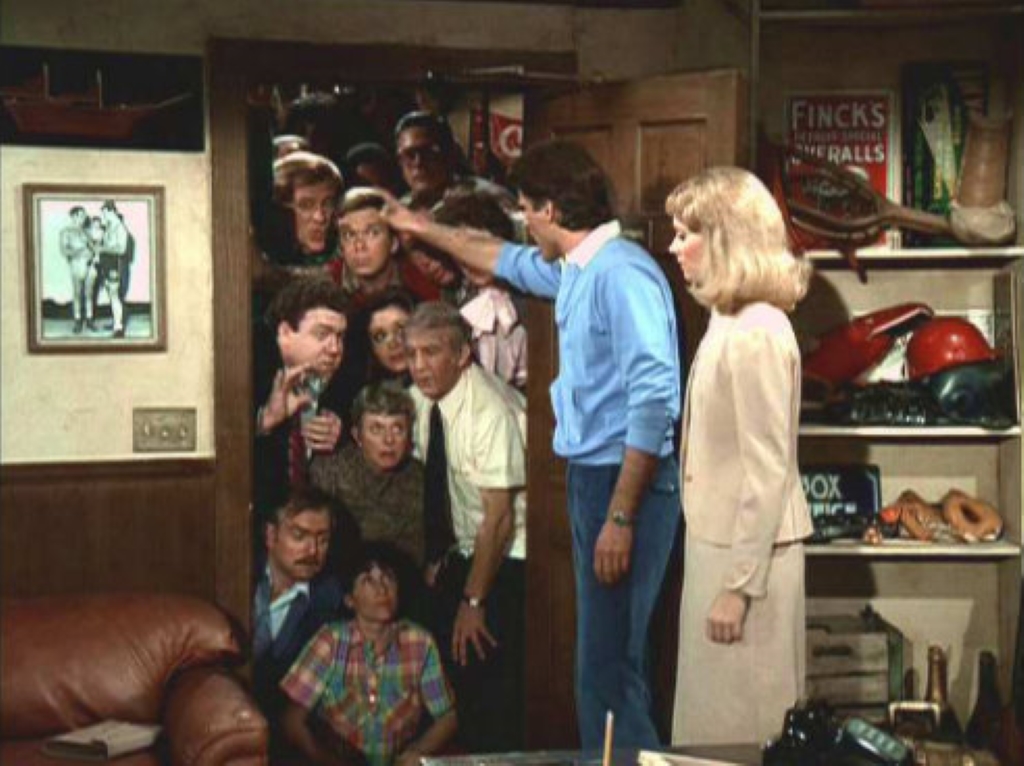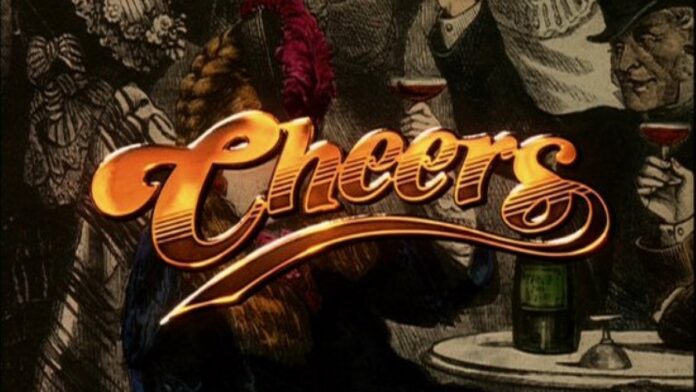Whether it can be precisely quantified or not, every scripted comedy in existence today carries the influence of Cheers.
Sometimes, the creators of these shows openly acknowledge their inspirations.
For instance, Michael Schur and Dan Harmon, the masterminds behind Parks and Recreation and Community, are known fans of Cheers.
In various interviews, Schur has praised the 1982-1993 show, especially its clever and witty dialogue that harkened back to the sharpness and eloquence of old radio plays and legitimate theater, setting it apart from the crowd, which was increasingly dominated by movie references and metacommentary about television itself.
Harmon alternates between likening the Greendale study room table to the Cheers bar and the monolith from 2001: A Space Odyssey.
Other showrunners from a similar generation share a deep connection to Cheers, as the show aired at some point during their formative years.
It doesn’t matter that earlier shows like Barney Miller and Taxi received critical acclaim and delivered humor while focusing on surrogate families.
None of them enjoyed an 11-season run. Furthermore, Cheers holds the distinction of shaping true TV romance, or perhaps it was lust, through the tempestuous relationship between Sam Malone and Diane Chambers.
They are the Adam and Eve of “Will They, Won’t They” relationships, serving as both the pioneers and the ultimate standard for all the men and women who love and loathe each other and take a season or two to come to terms with it.

Despite watching twenty different comedy series every week, I haven’t seen a full episode of Cheers.
Why? Because I belong to my generation, hovering on the border between Generation Y and the oldest Millennials.
Cheers isn’t as frequently mentioned among my peers as the ’90s shows The Simpsons, Seinfeld, and Friends, all of which were part of our childhood.
We enjoyed them during our initial viewings, even if we didn’t comprehend all the jokes. The adults we respected (or didn’t) also loved these shows.
Cheers, on the other hand, seems relegated to the Hallmark Channel, hidden away and seemingly forgotten among old Hallmark Hall of Fame made-for-TV movies.
Although it eventually earns the label “timeless” whenever it’s mentioned, there’s a misguided notion that Cheers isn’t relatable to the 18-34 age group in 2013.
Yet, I strongly suspect, based on the opinions of those older than me whom I hold in high regard when it comes to television, that Cliff Clavin is just as quotable as Homer Simpson or Chandler Bing.
I want to be transparent regarding my familiarity with Cheers. I’ve acquired knowledge about the show through various means, such as reading, listening to discussions, and brief forays into the world of made-for-TV movies.
However, I won’t divulge any significant spoilers. Here’s what I already know about Cheers: I’m aware of the Sam and Diane storyline.
Shelley Long left the show after season five in pursuit of a movie career that didn’t quite pan out. She was replaced by Kirstie Alley, who played Rebecca.
In the series finale, Shelley Long made a return. The cast celebrated the finale by getting thoroughly inebriated on The Tonight Show.
The final episode was a significant event, ranking as the second-highest-rated farewell episode of all time, a record that’s unlikely to be surpassed unless the landscape of television undergoes a drastic transformation.
I know that Coach was portrayed as less intelligent, and after the actor who played him passed away, Woody Harrelson took over as Woody, a character who may have been even less bright but was endearingly sweet.
This development paved the way for “smart” comedies to include at least one less intellectually gifted character in their ensemble (e.g., Andy Dwyer and Troy Barnes).
I’m aware of the annual Bar Wars, which saw the Cheers bar engage in friendly competition with various other Boston taverns. Cliff was a mail carrier known for his trivia expertise and a memorable appearance on Jeopardy!.
Norm was a frequent patron of the bar, and while the show’s theme song suggested that everybody knew each other’s names, the most enthusiastic shout of “Norm!” greeted his entrance.
That iconic theme song is well-known to almost everyone, even the Ice King, as seen in a poignant flashback episode of the ostensibly “for kids” Cartoon Network series Adventure Time a few months ago.
To address this notable gap in my viewing history, I’ve decided to embark on a journey of self-improvement.
Over the next eleven weeks, I will diligently watch all two hundred and seventy episodes of Cheers, devoting each Thursday to reflecting on a season.
During this journey, I’ll contemplate how many (if not all) of the greatest comedy series owe a debt to Cheers. Luckily, all the episodes are readily available on Netflix Instant.
I invite you, dear reader, to join me on this quest.
Whether you’re like me, experiencing these episodes for the first time, or a seasoned fan looking to catch nuances you might have missed, there should be ample time to partake in this adventure.
Missing a few days of TBS’ two-hour afternoon block of Friends won’t diminish your memory of Chandler’s fondness for scones.
You Might Like To Read: Roundtable Review: The Adventures of Superman, “Great Caesar’s Ghost”


